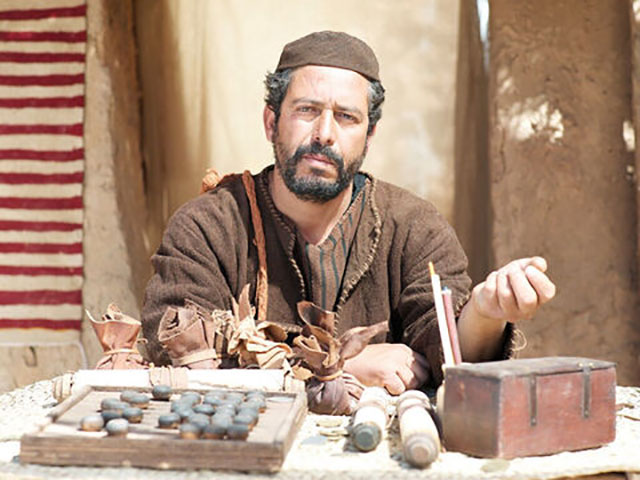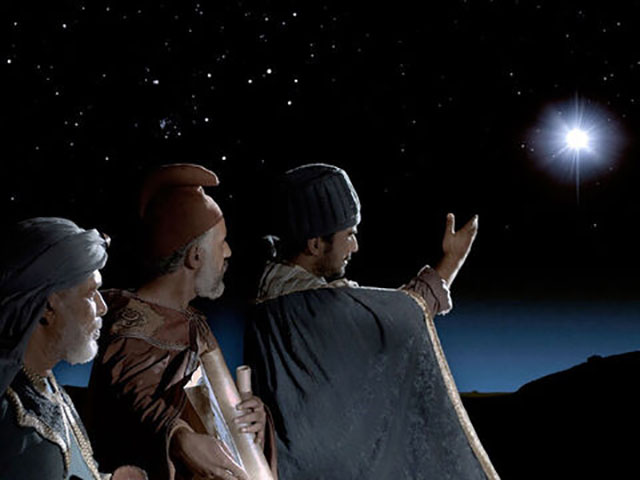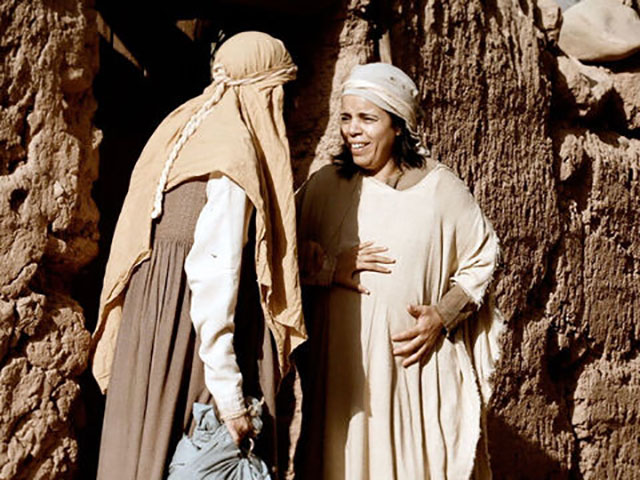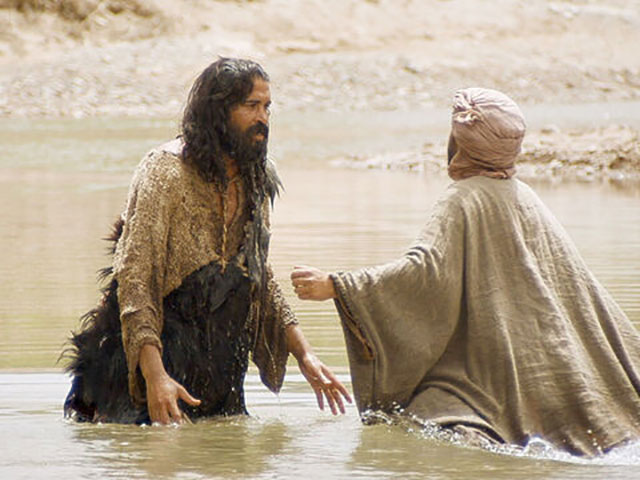
Good morning my “Walking with Jesus” friends,
Today we’re going to make a major shift in our journey together. Since the time frame of ’40 days’ is so often significant in the Bible, I am going to shift our focus from the chronology of the Old Testament, to walking a 40 day journey with you toward Easter, 2022.
Perhaps you know there are four books of the Bible which give us the story of the earthly life of Jesus Christ. They are the first four books of the New Testament and each is known by its author: Matthew, Mark, Luke and John. The first book of the New Testament is called “Matthew” and is written by the disciple Matthew whom Jesus called from his tax collector booth to come and follow Jesus. Matthew tells us that story in chapter 9 of his book. Matthew was a Jewish man. Both Luke (Luke 5:27) and Mark tell us Matthew’s given name was “Levi”. Mark also tells us Levi’s father was named “Alphaeus”. (Mark 2:14) That’s significant because names, especially names in Jewish families, give us insight into the expectations of parents. You’ll remember Levi was one of Jacob’s 12 sons, and the tribe of Levi were assigned to care for the Tent of Meeting, and later given special roles in caring for the Temple and the spiritual needs of the people of Israel. So for Matthew Levi to forsake that parental expectation and turn to ‘tax collecting’ for his career was about the greatest disappointment his parents could have experienced. It’s fair for us to assume Alphaeus and his wife were shunned by many fellow Jews who knew the lifestyle their son Levi Matthew had chosen. Perhaps they were pitied by others.

Roman leaders gave tax collectors a financial quota they were expected to extract from the people of their assigned geographical region, every month. Tax collectors were given access to Roman soldiers if force was needed to collect the tax. But tax collectors were also given latitude to demand more tax than what Rome expected and the ‘surplus tax’ they could keep for themselves. Thus it was an ugly, deceitful, heavy handed, but lucrative business. Tax collectors were hated by everyone and Matthew Levi was viewed by his fellow Israelites, from whom he extracted taxes, as a traitor to his name, his family, his nation and even God! It was therefore beyond shocking that Jesus would invite Matthew Levi to follow Him and become one of His disciples!
Matthew wrote his account of Jesus primarily for the benefit of Jews like himself, with a specific objective to prove that Jesus was in fact their long awaited Messiah. In his account of Jesus, Matthew Levi quotes the Old Testament more than any of the other Gospel writers. Matthew begins his story of Jesus with a long lineage tracing Jesus’ family tree all the way back to King David, and finally back to Abraham. Matthew is the only author who tells us about Joseph’s dilemma with his fiancé Mary’s news of her unexpected, miraculous pregnancy, and his angelic visitation. (Matt. 1:18-25) Matthew is also the only author to tell us about the Magi who came from the east following a star, looking for a newborn Jewish king, and the horrific Bethlehem slaughter which resulted. (Matt. 2) Matthew is also the only author to tell us of the middle of the night trip of Joseph, Mary and infant Jesus to Egypt, and their time as refugees in Egypt until King Herod died, and the role of angels in both their escape from Bethlehem to Egypt and their return to Israel to live in Nazareth. (Matt. 2)

The four Biblical accounts of the earthly life of Jesus are often called “gospels”. The word “gospel” means “good news”. Thus the story of Jesus should be understood to be God’s ‘good news’ for the world! Our journey from today through Easter will trace the journey of Jesus as told in these four ‘gospel’ accounts. All four writers begin their account of the adult life of Jesus with His encounter with John the Baptizer. This John, you may recall, is the miracle son of the old priest Zechariah and his old wife Elizabeth. Their story is told by Luke in the opening chapter of his ‘gospel’. (Luke 1) You’ll remember pregnant Mary, the mother of Jesus, went to spend three months with Zechariah and Elizabeth following Gabriel’s explanation to Mary about her miraculous conception, and that Elizabeth was also miraculously pregnant and already in her sixth month of pregnancy!
Did you know that Jesus and John actually had their first encounter when pregnant Mary arrived for her visit with pregnant Elizabeth? Luke records that encounter for us: “Mary hurried to a town in the hill country of Judea, where she entered Zechariah’s home and greeted Elizabeth. When Elizabeth heard Mary’s greeting, the baby [John] leaped in her womb, and Elizabeth was filled with the Holy Spirit. In a loud voice she exclaimed: ‘Blessed are you among women and blessed is the child you will bear! But why am I so favored that the mother of my Lord should come to me? As soon as the sound of your greeting reached my ears, the baby in my womb [John] leaped for joy. Blessed is she who believed that what the Lord has said to her will be accomplished!” (Luke 1:39-45) Now that sounds miraculous and mysterious, doesn’t it? What do you think it means? I think God was making a clear statement to these two women and to the world. Both babies were miracles of God, and the babies would have a special relationship as adults, and that relationship would help both of them accomplish their God given life mission! Now ponder that a moment my friends!

Luke’s gospel is written very differently from Matthew Levi’s account. Luke was not Jewish, he was a Greek physician from Macedonia! Luke never met Jesus personally, but became the Apostle Paul’s personal, traveling physician. It was Paul who explained Jesus to Luke, and then over the years Luke made every effort to personally interview many of those close friends of Jesus. In fact Luke opens his story by claiming that he had ‘carefully investigated everything from the beginning to write an orderly account…” (Luke 1:3) So Dr. Luke likes to give us dates and names of those in various leadership roles, so we can fix events in global history. Luke records this important statement: “In the fifteenth year of the reign of Tiberius Caesar – when Pontius Pilate was governor of Judea… the word of God came to John, son of Zechariah, in the desert. He went into all the country around the Jordan, preaching a baptism of repentance for the forgiveness of sins. As is written in the book of the words of Isaiah the prophet: ‘A voice of one calling in the desert, prepare the way for the Lord, make straight paths for Him…” (Luke 3:1-4)
Do you see what Dr. Luke did? He gave us a date… the 15th year of the reign of Tiberius Caesar is what we know today as the year 29ad because Tiberius was the Roman Caesar from 14-37ad. Do you see that Luke reminds us that John was the miracle son of old Zechariah, and that God had an encounter with John, perhaps similar to His encounter with Moses, which was John’s commissioning into his earthly mission of being the ‘forerunner’, the ‘announcer’ of Jesus, as the long awaited Messiah! Do you see how Luke links the prophet Isaiah’s prediction of such a person, directly to John the Baptist?
And finally my friends, do you see Luke wants us to understand that the baptizing John was doing was different from the baptizing Jesus urged His disciples to do when people trusted in Jesus for their salvation? Luke learned that from Paul who when they first arrived at the city of Ephesus encountered people who told him they had been baptized with John’s baptism. Yes, Luke was an eyewitness to that encounter in Ephesus! Paul explained: “John’s baptism was a baptism of repentance. He told the people to believe in the One coming after him, that is, in Jesus.” (Acts 19:4)
Luke and Matthew both tell us the people who heard John ‘preach’ and call them to baptism wondered if he might be the long awaited Messiah? But John made it very clear when he said: “I baptize you with water. But One more powerful than I will come, the thongs of whose sandals I am not worthy to untie. He will baptize you with the Holy Spirit and with fire. And with many other words John exhorted the people and preached the good news to them.” (Luke 3:15-18) What good news you might ask? The good news that Jesus, their Messiah, was alive and among them, and very, very soon John would be introducing Jesus to them!!

I think we’ll pause right here on the banks of the Jordan river, listening to John preach, and watching as Jewish people walk down into the river to be baptized by John, repenting of their sin and wanting to be ready for their Messiah. They didn’t know it, but Jesus was standing in that crowd that day, and tomorrow we’ll watch as Jesus and John meet for the first time as adults, ready to accomplish their God given life mission!
Bible images provided with attribution to www.LumoProject.com.
Have a comment or question about today’s chapter? I’m ready to hear from you, contact me here.

Pastor Doug Anderson 262.441.8785
“Let us run with perseverance the race marked out for us, with our eyes fixed on Jesus…” (Heb. 12:1,2)
Archived back issues of “Walking with Jesus” and other resources are available by clicking here to open our ‘home page’ (or go to HOME at upper right of this page).
Share with friends. Subscribe below for daily “Walking with Jesus”.

Facebook
Twitter
LinkedIn
Pinterest
Email
WhatsApp


